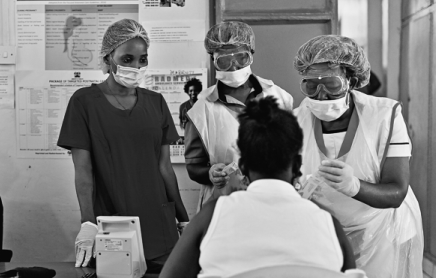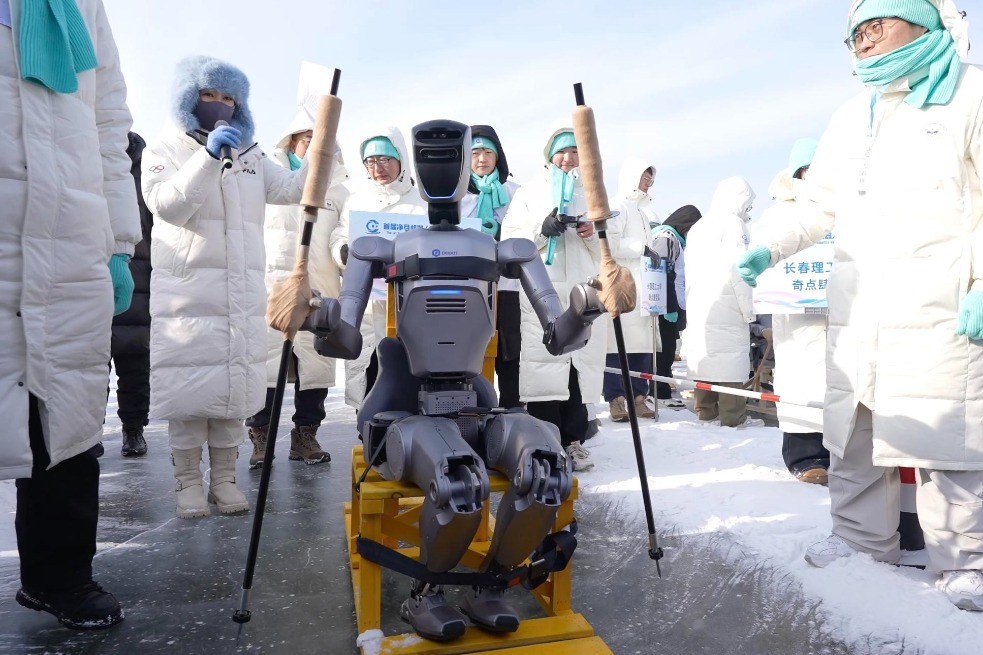Clean water key to African virus effort

Immediate action is needed to increase access to clean water and improve sanitation and hygiene in African nations if community transmission of COVID-19 is to be kept under control, according to an expert from the END Fund, a philanthropic organization that combats disease.
Joy Ruwodo, who is the END Fund director of public affairs for the Africa region, said that improving the WASH sector-or water, sanitation and hygiene-is one of the most pressing issues as the continent braces for potential widespread outbreaks.
"Breaking transmission means we need to be creating opportunities to have clean water and access to good sanitary practices including soap and hygiene," she said. "At this point we still have healthcare facilities that still don't have that within Africa."
Ruwodo called on private-sector actors, corporate high-net-worth individuals and philanthropists to "channel efforts toward improving the WASH sector" across Africa.
Ruwodo was speaking in a webinar jointly hosted by the Chinese embassy in the United Kingdom and London-based think tank the Legatum Institute.
Liu Xiaoming, China's ambassador to the UK, said:"At the height of the challenge from COVID-19 in China, our African brothers assisted us to the best of their capabilities. Now, we are reciprocating African countries' support."
Liu said China has donated medical supplies and Chinese medical teams are taking part in the battle against COVID-19 in many African countries.
During the webinar, doctors, politicians and public health experts shared their thoughts on how to best organize treatment and reduce transmission in Africa.
As of Thursday, there were 72,336 confirmed COVID-19 cases and 2,475 deaths in Africa, according to the Africa Centres for Disease Control and Prevention.
South Africa had reported 12,074 cases and 219 fatalities by Wednesday, the highest in Africa, according to health authorities.
President Cyril Ramaphosa said on Wednesday that he aimed to further ease a nationwide lockdown.
He said that consultations with stakeholders have begun on a proposal to place most of the country on "alert level 3" of a five-level system by the end of May, but places with the most infections would likely remain into June on "alert level 4".
The Kenyan Health Ministry on Wednesday reported 22 new cases, raising the total to 737.
Quarantining, triaging
Wu Zunyou, chief epidemiologist at the China Center for Diseases Control and Prevention, emphasized the importance of quarantining and triaging infected people based on the severity of illness, if and when major outbreaks occur.
In Wuhan, Wu said, the use of shelter facilities for people with mild or moderate symptoms helped to both stem the spread of the disease and lower the burden on general hospitals, which were reserved for patients with more severe cases.
Wu also said that, if possible, those who have been in contact with infected individuals should not be sent home to self-isolate, but rather directed to adapted temporary quarantine facilities including hotels. This is to ensure that spread of the disease within families is kept to a minimum.
Ruwodo agreed that this approach should be considered in some communities in Africa, where many people do not have the necessary floor space or individual rooms needed to effectively isolate from their families while at home.
Chen Yingqun in Beijing and Xinhua contributed to this story.

Today's Top News
- Xi's speech at Central Urban Work Conference to be published
- China completes over 8 million hectares of land greening in 2025
- FTZ helps Kashgar invigorate regional commerce
- Canada, China should eye a fresh start
- US playing with fire on thin Arctic ice
- Party conduct key to clean governance






























